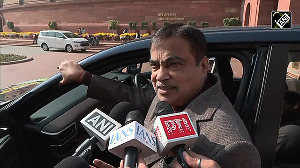 Filing your Income Tax return should be an important task on your 'to do' list. Evading taxes is a crime. However, you should be able to reduce your tax liability wherever you are eligible to do so.
Filing your Income Tax return should be an important task on your 'to do' list. Evading taxes is a crime. However, you should be able to reduce your tax liability wherever you are eligible to do so.
Knowledge of the income tax laws is indispensable. There may be tax deductions available that you may not be aware of. For example, you may be paying an insurance premium that is an eligible tax deduction and you may not even know about it. . .
So here are some tax deductions that you cannot miss:
Deductions under section 80C
These are tax deductions relating to the investments that you make. Note that your objective of making an investment should not be to avail a tax deduction. Tax benefits are only ancillary benefits of investments and should be treated as such.
For example, take Sneha's case. She purchased life insurance because she was eligible for tax deduction under section 80C for the amount of premium she paid. However, Sneha failed to realize that she would have to pay this premium every year for the next 10 years even if she had no tax benefit from it if she stopped working after two years.
Further some of the eligible investments have lock-in periods like a fixed deposit with a scheduled bank has a minimum term of 5 years. That means even if you get a tax deduction in the year you make the deposit, you will not be able to use the money for the next 5 years.
Following payments can be deducted from taxable income up to the limit of Rs 1 lakh (Rs 100,000):
- Principal repayment of home loan (property should be held for a minimum of 5 years to avail this benefit);
- Contribution to Provident Fund (PF), Public Provident Fund (PPF);
- Amount paid to purchase National Savings Certificates;
- Life insurance premium paid (amount up to 20 per cent of the sum assured is eligible. So, if you purchase a policy for Rs 10 lakh, or Rs 1 million, the annual premium up to an amount of Rs 2 lakh (Rs 200,000) is deductible under this section);
- Premium paid on ULIPs (unit-linked insurance policies);
- Amount paid for ELSS (equity linked savings scheme);
- Amount of fixed deposit with a scheduled bank for a minimum term of 5 years;
- Amount of term deposit with a Post Office for a minimum term of 5 years;
- Subscription to equity shares or debentures of any eligible capital issue of a public company or public financial institutions;
- Tuition fees for up to two children.
Deduction under section 80CCC
Under this section contribution to IRDA-approved annuity funds of LIC or any other insurer are deductible from taxable income.
The annuity fund should be designed such that the investor receives regular pension after a certain period. Benefit under this section comes under the overall limit of Rs 1 lakh under section 80C.
Deductions under section 80D
Did you know that the premium you pay towards medical insurance is a deductible expense? Medical insurance for yourself, your spouse and children as well as your parents is deductible from taxable income. Here are the limits:
|
|
Limit (Rs) |
|
Individual |
15,000 |
|
Spouse | |
|
Children | |
|
Parent | |
|
Senior Citizens |
20,000 |
Deduction under section 80 DD
This section qualifies expenses incurred on maintenance and medical treatment of a person suffering from a disability.
If you deposit any money in schemes such as some offered by Life Insurance Corporation for the maintenance of a disabled dependant, this money is also eligible for tax deduction. The limit is Rs 50,000 and has been recently increased to Rs 100,000 for severe disability.
If you take care of an ailing relative or any other individual dependant on you, it is important that you check if you qualify for this deduction.
Let us study the impact of these deductions on one's tax liability:
|
Income tax computation |
FY 2009-2010 |
|
Particulars |
Rs |
|
Taxable Income (without deductions) |
400,000 |
|
Tax rate |
20% |
|
Income Tax payable |
80,000 |
|
Taxable Income |
400,000 |
|
Deduction u/s 80C and 80CCC |
(100,000) |
|
Deduction u/s 80D |
(15,000) |
|
Deduction u/s 80DD |
(50,000) |
|
Taxable Income after deductions |
235,000 |
|
Tax Rate |
10% |
|
Income Tax Payable |
23,500 |
|
Income Tax Saved |
56,500 |
Education Cess not considered in the above example.
In the above example, by availing the tax deduction, not only has the assessee reduced his taxable income but also been levied tax at a lower rate!





